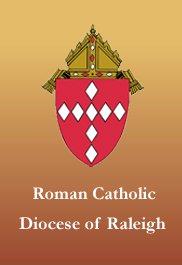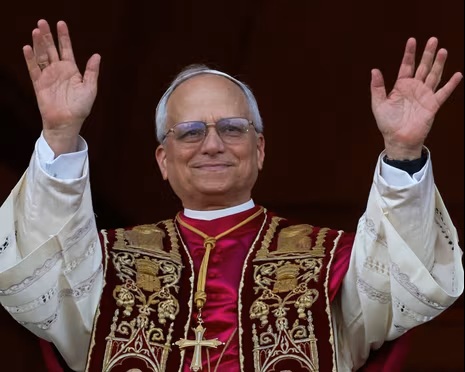Do We Need “Sundays After Pentecost?”
In the previous Roman Calendar, the Sundays that we now call the second part of “Ordinary Time” used to be called “Sundays after Pentecost.” With the reform of the Roman Calendar in 1969, Ordinary Time now begins on the Monday after Pentecost (suppressing what used to be an Octave of Pentecost). The Sunday after Pentecost is now Trinity Sunday and, in the United States, Corpus Christi has been transferred from the Thursday after Trinity Sunday to its following Sunday. So, unless a Catholic goes to daily Mass, he’s unlikely to know that the Church reverted to Ordinary Time or see its typical green vestments for about three weeks.
In the reform of the Roman Calendar, Eastertide was also changed. The Sundays of those fifty days are now called Sundays of Easter, not after Easter. The Sunday after Easter Sunday, for example, is the Second Sunday of Easter (the Feast of Divine Mercy came later) and so it goes through the Seventh Sunday of Easter (typically pre-empted in most of the United States by the transferred Solemnity of the Ascension).
The logic for referring to Sundays in Eastertide as of rather than after Easter is solid: “the joy of the Resurrection” is so pervasive that it takes the 50 days of Easter to fulfill it. Furthermore, in the reformed Roman Calendar, every Sunday is a “little Easter,” because it celebrates the Resurrection and refocuses our attention on the core event of our salvation: Jesus’ Passion, Death, and Resurrection. As St. Paul reminded us, without the Resurrection, it would all be in vain (1 Corinthians 15: 2).
Now, I have no issue with the reform of the Roman Calendar and how it treats Easter Sundays. But I do have some thoughts on the “Sundays after Pentecost.”
I understand why the Church adopted the category “Ordinary Time.” In liturgical terminology, any period that does not have a “proper” (i.e., individual) set of opening prayers, prayers over the gifts, and post-communion prayers for every day in that period is “ordinary.” In Advent, for example, there are specific prayers (“propers”) for Thursday of the Third Week of Advent; there is no corresponding set of “propers” for the Third Week of Ordinary Time. The celebrant uses the Sunday texts.
As continues to be the practice in the “Extraordinary Form” of the Mass, what most Catholics know as “Ordinary Time” between Epiphany and Lent is still called “Sundays after Epiphany” and “Ordinary Time” between Pentecost and Christ the King is “Sundays after Pentecost.”
The more I think about it, the more something could be said about “Sundays after Pentecost.”
Although it’s the third most important celebration of the Church’s liturgical calendar – after Easter and Christmas – Pentecost hardly gets the same attention. Some parishes are just beginning to discover the Pentecost Vigil liturgy but, for most, it’s “just another Sunday in Peoria.”
Which makes us forget just how important Pentecost is.
The solemnities of the Easter time – Easter, Ascension, Pentecost – all express in time one big mystery: that God “reconciled the world to Himself and sent the Holy Spirit among us for the forgiveness of sins,” a mission to be carried out until the end of the world. We forget that salvation history did not end with Pentecost or the end of the Apostolic Age. The work of salvation, the work of Easter-Ascension-Pentecost, goes on until the Last Day. Indeed, certain feasts link that work together: the Assumption already points to the first fruits of the integration of the universe on the Last Day.
Pentecost was not just something for the Apostles. It is, as many homilists are wont to note, the “birthday of the Church.” It was the day that the Church got a mission to carry out until its Last Day, a mission that is the only sense for why the Church exists: to “go and teach all nations, baptizing them in the name of the Father and of the Son and of the Holy Spirit.” The Church’s sole raison d’être is to continue Jesus’ saving work. Pentecost empowered the Church to do it.
Furthermore, Jesus promised to send the Paraclete not just to empower us and to be our companion on the way to the Last Day, but to “remind you of everything I have told you” (John 14:26). That is exactly what the Church is doing on all those Sundays of Ordinary Time: in reading the Gospels of Jesus’ public life and ministry, it is reminding us of what He said. In the three year cycle, we are reminded of His parables, His Eucharistic teaching, His teaching on divorce, His words of forgiveness and fraternal correction, and His counsel to keep watch and be prepared. In the light of His Resurrection, the Church and its Spirit “reminds us” of those teachings through those Sundays.
So, perhaps remembering them as “Sundays after Pentecost” may be useful. As I said, because we tend to relegate Pentecost to a single Sunday, which downplays its theological significance, its relevance as the empowering event for everything we do in the Church seems to get short shrift. But if we were to reflect on Jesus’ teaching as an aspect of that Pentecost mission – to go and teach all nations, bringing them the Person and message of Christ – we might also gain insight both into the significance of Pentecost as well as our apostolic, missionary vocation as members of the Church.
I grant that such an adjustment to the liturgical calendar could prove awkward because we are still left with the first phase of Ordinary Time—the “Sundays after Epiphany”—and the Gospels of that period also are best read in Pentecost perspective. Yes, at one time Epiphany was even more significant in some parts of the Church than Christmas, but that time is long past. “Sundays after Epiphany” might not hold the same significance as “Sundays after Pentecost.”
The pleasure of a blog like this is that, sometimes, one can float ideas without necessarily having a solution in mind. That’s my goal today: to suggest how we might try to recover the significance of Pentecost as a feast but, even more important, as an event in the life of the Church, one that continues in importance throughout our lives, hung between incorporation into Christ (Baptism) and the Last Day. Liturgical theology notwithstanding, “Ordinary Time” leaves the taste that it’s about “whatever’s left over.” That’s a misunderstanding of the technical term “ordinary” (a misunderstanding our English word abets).
But as I have also argued, there is nothing “ordinary” about time: salvation takes place amidst the ordinary warp and woof of daily life and decisions, as a certain Roman procurator found out a certain spring Friday morning. So, we should not depreciate the “ordinary”—especially because, like our hairs, our days are numbered—but they’re not ordinary precisely because of Pentecost, precisely because the Spirit has given us the power and a mandate to make disciples of all nations. We should not lose that perspective. Perhaps recovering the “Sundays after Pentecost” could help.



